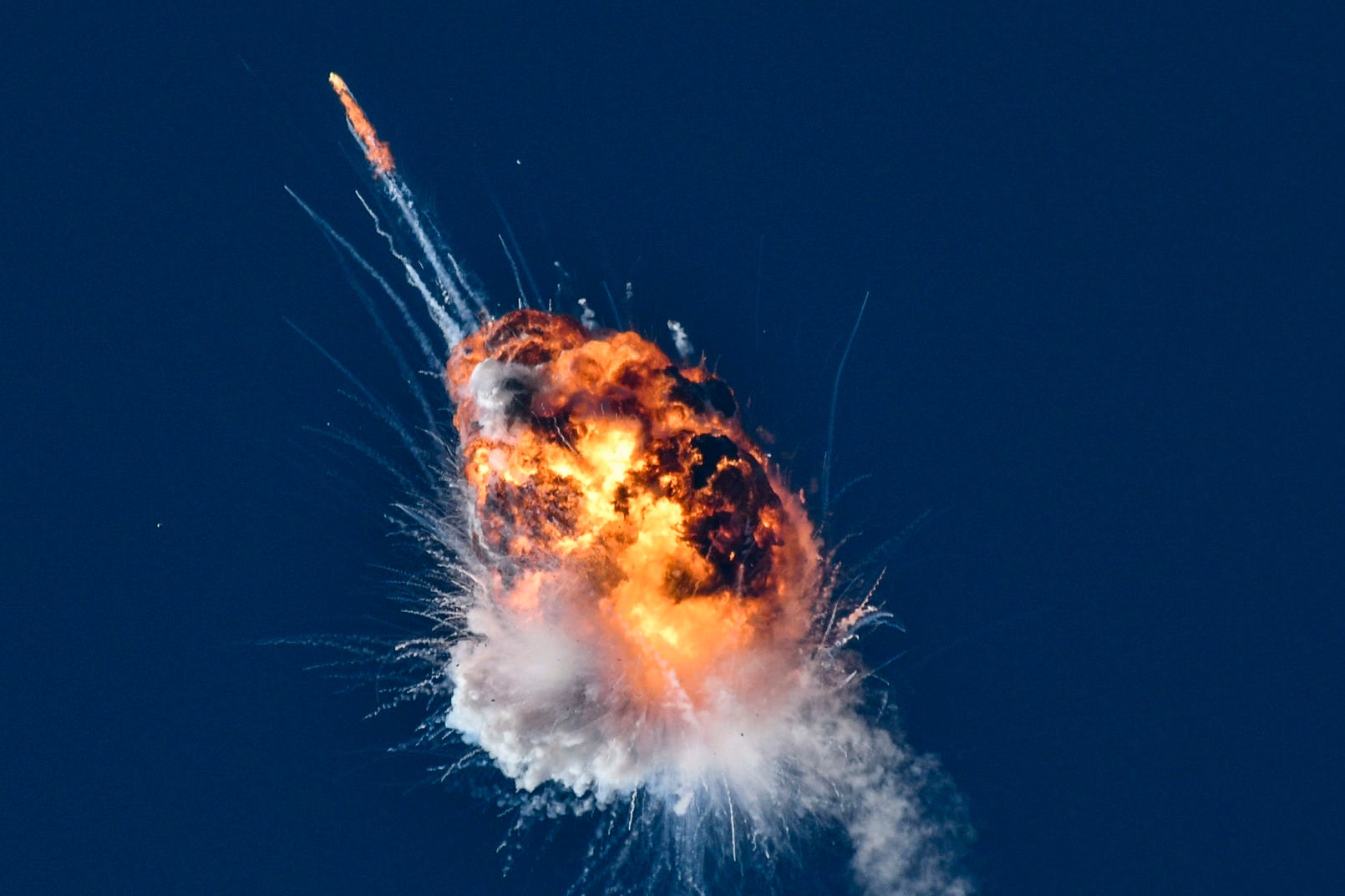Rocket 'terminated' in fiery explosion over Pacific Ocean
A privately designed, unmanned rocket built to carry satellites into orbit exploded in a fireball off the California coast

Your support helps us to tell the story
From reproductive rights to climate change to Big Tech, The Independent is on the ground when the story is developing. Whether it's investigating the financials of Elon Musk's pro-Trump PAC or producing our latest documentary, 'The A Word', which shines a light on the American women fighting for reproductive rights, we know how important it is to parse out the facts from the messaging.
At such a critical moment in US history, we need reporters on the ground. Your donation allows us to keep sending journalists to speak to both sides of the story.
The Independent is trusted by Americans across the entire political spectrum. And unlike many other quality news outlets, we choose not to lock Americans out of our reporting and analysis with paywalls. We believe quality journalism should be available to everyone, paid for by those who can afford it.
Your support makes all the difference.A privately designed, unmanned rocket built to carry satellites was destroyed in an explosive fireball after suffering an “anomaly" off the California coast during its first attempt at reaching Earth s orbit.
Firefly Aerospace's Alpha rocket was “terminated" over the Pacific Ocean shortly after its 6:59 p.m. Thursday liftoff from Vandenberg Space Force Base, according to a base statement. Video from the San Luis Obispo Tribune showed the explosion.
Firefly said an “anomaly” occurred during the first-stage ascent that “resulted in the loss of the vehicle” about two minutes, 30 seconds into the flight. Vandenberg said a team of investigators will try to determine what caused the failure.
Austin Texas-based Firefly is developing various launch and space vehicles, including a lunar lander. Its Alpha rocket was designed to target the growing market for launching small satellites into Earth orbit.
Standing 95 feet (26 meters) high, the two-stage Alpha is designed to carry up to 2,200 pounds (1,000 kilograms) of payload into low orbit.
Thursday’s rocket was carrying a payload called DREAM, or the Dedicated Research and Education Accelerator Mission. It consisted of items from schools and other institutions, including small satellites and several demonstration spacecraft.
The company wants to be capable of launching Alphas twice a month. Launches would have a starting price of $15 million, according to Firefly.
Firefly will have to catch up with two Long Beach California-based companies that are ahead in the small satellite launch sector.
Rocket Lab has put 105 satellites into orbit with multiple launches from a site in New Zealand and is developing another launch complex in the U.S.
Virgin Orbit has put 17 satellites into space with two successful flights of its air-launched LauncherOne rocket, which is released from beneath the wing of a modified Boeing 747.